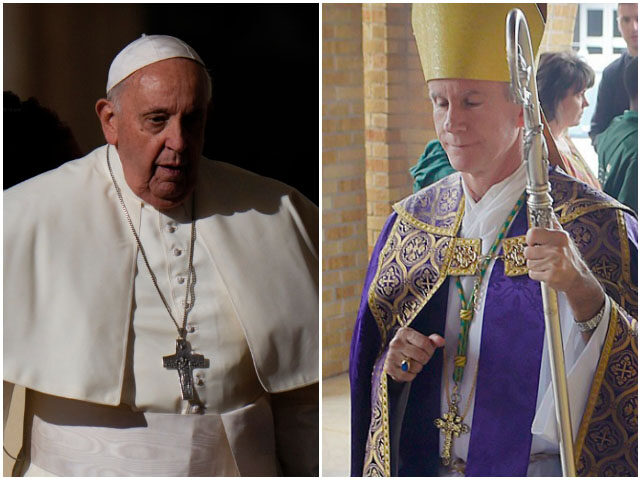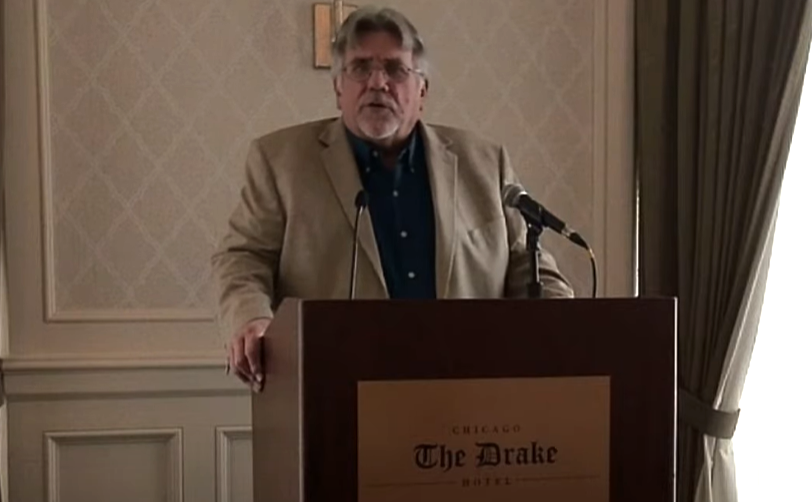By Anthony Esolen, Crisis Magazeine, April 24, 2018
Conscience is one of the ecclesiastical words of the day. It is the king if not the ace of trumps, to be slapped on the table to take the trick and surprise the conventional and inattentive opponent. I wonder whether people who believe in the power of that card have considered how versatile man’s reason is when he wants to justify whatever he wishes to do. Man is as Pope said, “the glory, jest, and riddle of the world,” a mystery to himself. Who knows his own mind? How often have we pursued with great energy a morally dubious object that we did not need, and that if we were honest with ourselves we would confess we did not want or enjoy? Or how often does man flee from what holds forth happiness for him, because to be happy he would have to give up the smoky satisfactions of self-willed unhappiness, anger, spite, envy, and resentment? One of the inscriptions at the entrance to the oracle at Delphi was “Know Thyself.” Why such a command, if that knowledge were not difficult to attain?
Yet why should I call attention to our divided minds and wills, when those who are embarrassed by the Church’s teachings regarding marriage—to take the currently neuralgic site of controversies—or who oppose those teachings do so for me? I am not the one who says that it is nigh unto impossible for a young or not so very young couple to make a conscious and informed commitment to devote themselves to one another until death should part them. They are the ones who say it. They are the ones who imply or say outright that in our time adolescence is protracted so long, we can hardly tell whether a man and woman of more than thirty years are ready for marriage for the next thirty or forty or fifty. We also hear that it is nigh unto impossible for people to commit a deadly sin, because they must do so with full knowledge and consent. That may be true or not, but if it is true, then their “conscience” is the last thing we should trust, because it would be less conscience than a muddle of error, rationalization, picture-plays, and passion. A boy and a girl in the back seat of a car may be many things. Calmly conscientious is not one of them.
I call to the witness box also those who say, inaccurately but revealingly, that there is a “rape culture” on our college campuses. They do not mean that young women are overpowered by strangers in alleys. They mean that young people do things sexually that they regret afterward, because they did not fully consent to them. Not that most of them resisted, not that they believed that such things were wicked and not to be done at all, not that they possessed an ideal of virtue that they wished to remain pure. The people who call “rape” do not in fact believe in that ideal. They are referring to consent, which to qualify as consent must be total, and thus they echo those who deny the practical possibility of committing a deadly sin.
If anything these people prove both too much and not what they set out to prove. For when you are doing a grave wrong, you will usually feel divided against yourself, because you will in fact be divided against yourself, against your own good. This is so whether you are the one persuading or the one persuaded, and though in sexual matters the male is usually the aggressor, it is by no means always so, as I have come to observe. Young people in close contact, with time on their hands, no law other than the amoral “do what you like so long as your partner consents,” much drink, loneliness all around them, and encouragement from mass culture and from their peers, will do bad things and will often regret them. They have no guides, and no guards. Aggression is bad, and chivalry is despised; we call for gentleness without the gentleman, and the gentleman without the man who would be gentle. So we prey upon one another like marauders; we are savages with degrees, and money in the bank.
The regret springs from the badness of the deed. Let us change the terms of the problem. Let us suppose we are talking about money. Your friend urges you to go in with him on a real estate transaction. It is perfectly legal. You are buying a plot of land to develop for a trailer park. You have no moral qualms about it. It is a good piece of land, and the town could use some low-income housing. Your qualms are about your friend. He’s the sort who has often begun a project with great enthusiasm, only to lose steam when troubles come up, as they will. But he is pleading with you. You secretly wish he would forget about it. When he asks for the fifth time, and it seems you are on the edge of losing your friendship, you give in. You go shares with him, one third to two thirds, and take out a mortgage for $200,000. You are not entirely easy in your mind about whether you will profit by it.
Your consent has not been total, if by that we mean that you have entered into the deal with full knowledge and the full energy of your will. Have you been swindled? No, not at all. You may end up regretting the deal, but since the deal was itself not wrong, your regrets will not darken your soul unless you allow them to turn to resentment against your friend.
Consider the murk of your mind as you weigh the good and the bad before you sign the mortgage. That is as clear and bright as daylight in the Sahara by comparison with your “conscience” when the urges of the most powerful of human drives are upon you. Again, the opponents of clarity admit as much, unwittingly. If a marriage is no marriage because a decision long in the making can be considered as no decision at all, and a vow taken long after that decision can be considered of no force even though the words are clear, and the symbolic actions and the place where they are performed lend that vow something of the solemnity and finality of the end of an old world and the beginning of a new, then let us not bother to bring up the solemnity and finality of “conscience,” when Joe and Mary are shacking up, or Joe and Bob are doing what is worse still.
What is this “conscience,” anyway? What are we talking about? Milton’s Satan squatted like a toad at the ear of the sleeping Eve,
Assaying by his devilish art to reach
The organs of her fancy, and with them forge
Illusions as he list, phantasms and dreams,
Or if, inspiring venom, he might taint
The animal spirits that from pure blood arise
Like gentle breaths from rivers pure, thence raise
At least distempered, discontented thoughts,
Vain hopes, vain aims, inordinate desires
Blown up with high conceits engendering pride.
Still a babe in temptation, that Satan. He has grown far more sophisticated now. He now employs a vast industry of phantasms and dreams, and can let it work every hour of the day and every day of the week, right through the Sabbath, while he sips a fiery tequila and lounges at length upon the lighted oil-sands of Hell. Eve’s imagination, and Adam’s too, has been formed by an endless series of pictures, pronged with the fires of lust, envy, wrath, and pride, or slicked and smoothed with vanity and the film of beauty. Were the main concourse of Vanity Fair devoted to violence rather than to licentiousness, Adam’s hands would remember the feel of a good stout ax and the terrific crack of a skull beneath it; and if that sounds dreadful to you, as it should, consider the thousands of evil images that have been poured into the minds of young Adam and Eve in our time. If Adam with the bloody ax cannot be trusted for his opinions on when it is permissible to murder an enemy, I doubt that Adam with the well-thumbed pack of prophylactics in his pocket, or Eve with her pharmacopia of body-deceiving drugs, can be trusted to speak intelligently about why and how and whether a man leaves his mother and father and cleaves unto his wife, and they two become one flesh.
We do not know who we are. We never have known it well. Simon Peter thought he was a brave man. Caiaphas thought he was protecting the people. Judas knew how money ought to be spent—or gained. The Samaritan woman thought she had another husband. Benedict Arnold thought the British were right after all. If we do not know ourselves, how can we trust those selves we do not know when we seek the moral law? We cannot seek it in ourselves or from ourselves, but only outside of ourselves, and therefore often and inevitably in contradiction with ourselves. Only then do we really confront the moral law, which is not of our devising, and we give it as it were the status of a resident alien in our ill-governed city. That law then begins to form our conscience, which we would much prefer to be rid of. As one of the murderers in Richard III says:
I’ll not meddle with it: it is a dangerous thing. It makes a man a coward: a man cannot steal, but it accuseth him; he cannot swear, but it checks him; he cannot lie with his neighbor’s wife, but it detects him. ‘Tis a blushing shamefast spirit that mutinies in a man’s bosom; it fills one full of obstacles. It made me once restore a purse of gold that I found; it beggars any man that keeps it. It is turned out of all towns and cities for a dangerous thing; and every man that means to live well endeavors to trust to himself and to live without it.
In our time, we have perfected the trick of appealing to the word while living without the thing itself. We say that our consciences are clear, when really our souls are blank, and our minds are filled with the images of what we are inclined to do, or what we have been trained to desire. In such a predicament, we turn to the Church, though not necessarily to all of those who pretend to speak for her, and she, in language barbed with many centuries of meditation upon the word of God, gives us the law we secretly know is the law, and the grace to beg for the grace to live by it.
Editor’s note: Pictured above is a detail from “Adam and Eve” painted by Peter Paul Rubens (1628-29).
© Copyright 2018 Crisis Magazine. All rights reserved.







